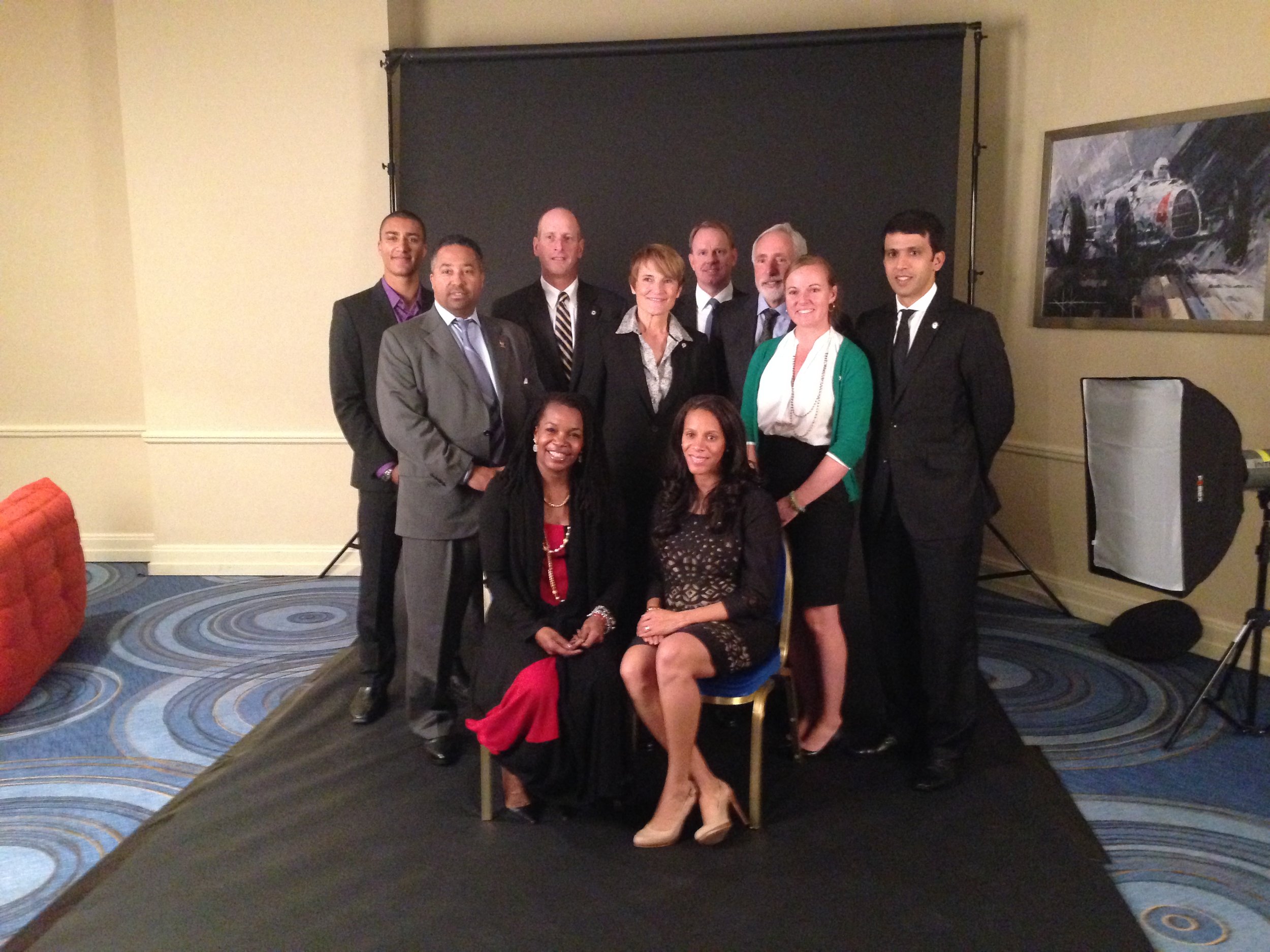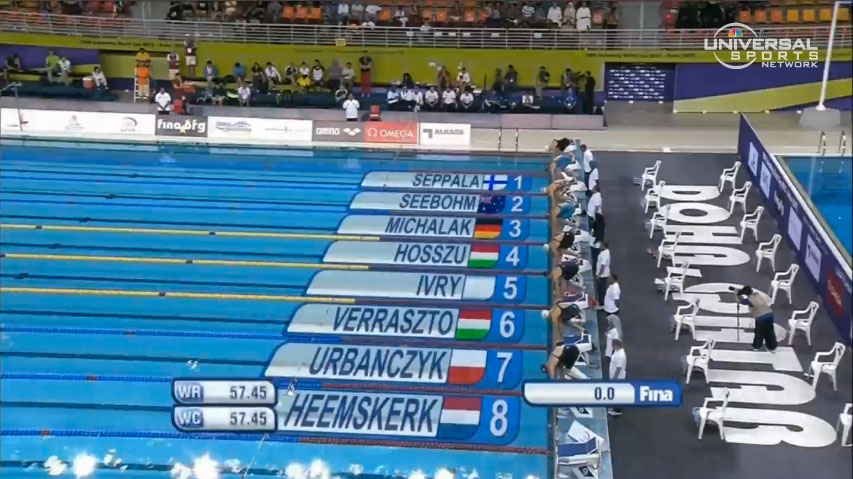LAUSANNE, Switzerland -- The Olympic Games produce moments. Those moments become memories. Those memories inspire the hopes and dreams of generations. At the 1992 Barcelona Summer Games, Derartu Tulu of Ethiopia would win the women's 10,000-meter run, the first black African female gold medalist in Olympic history. After Tulu crossed the finish line, it took Elana Meyer, a white South African, almost six seconds more to get there. A few more steps past the finish line, Mayer found Tulu. They kissed. Then, hand-in-hand, they ran together, black and white, first and second, yes, but equals in sport and spirit, symbols of hope and possibility for South Africa, for all of Africa, indeed the world.
Because of its apartheid policies, South Africa had been banished from the Olympics after the Rome 1960 Games. Barcelona 1992 marked its return to the world stage. Those Olympics took place about two and a half years after Nelson Mandela's release from prison.
Mandela was then 74. In the hours before the South African team would march in the opening ceremony, he arrived in the Olympic Village to speak to the team. This, as a Sports Illustrated story reported, is what he said:
"All I want to say is that our presence here is of great significance to our country, a significance which goes beyond the boundaries of sport. Our country has been isolated for many years, not only in sports but in other fields as well. We are saying now, 'Let's forget the past. Let bygones be bygones.' I want to tell you that we respect you, we are proud of all of you and, above all, we love you."
Mandela died Thursday at 95, an icon of hope and possibility. In sport he often saw a pathway toward reconciliation.
The president of the International Olympic Committee, Thomas Bach, said Friday the Olympic movement would be mourning a "great friend and a hero of humanity."
Bach, before a meeting at IOC headquarters along Lake Geneva, recounted how he met Mandela. In telling the story the IOC president paused to collect his emotions:
It was a private gathering several years ago, Bach said, and so he could ask Mandela the question he had always wanted to ask:
"You invited to your [May, 1994, presidential] inauguration even the worst from Robben Island. Don't you feel hate?"
Bach went on:
"His immediately response was no."
The IOC president said:
"I think he saw the doubt in my eyes," the kind that says, "You don't believe."
Bach continued:
"I said, 'Mr. President, this is really hard to believe after all you have been suffering."
"He said, 'I can tell you why.'
"I said, 'Why, Mr. President?'
"He said a sentence which still gives me goosebumps today. I will never forget it. He said, 'Because if I hate, I would not be a free man.' "
Usain Bolt's tweets since the announcement of Mandela's death included these:
"Just here thinking that Mr.Mandela in prison for 27 years is how long I'v been alive..Words are inadequate to describe this man #RIPMandela"
And: "One of the greatest human beings ever..May your soul rest in peace..The worlds greatest fighter."
In sport Mandela could see beyond fight. He was often quoted as saying, "Sport has the power to change the world. It has the power to inspire. It has the power to unite people in a way that little else does. It speaks to youth in a language they understand. Sport can create hope where once there was only despair."
Sam Ramsamy, now South Africa's IOC member, also at the meeting Friday in Lausanne, read those words once more to a hushed audience. At that inauguration 19 years ago, Ramsamy recalled, he had the honor of being the first to say aloud, "President Nelson Mandela."
Australian IOC member R. Kevan Gosper, at the Lausanne meeting as well, played a key role in bringing South Africa back into the Games. He, like Ramsamy, returned time and again Friday to Mandela's emphasis on sport as a vessel for potential and for change. And, like Bach, to the elemental humanity of Mandela himself.
In 1995, just a year after he took office, South Africa defeated New Zealand in the final of the rugby World Cup. The Springboks, as the team is known, had long been the favored sport of South Africa's white minority; for many blacks, the team -- and the mascot -- had become symbols of oppression. In the scene commemorated in the movie "Invictus," Mandela famously handed the championship trophy to the Springboks' white captain, Francois Piennar, while wearing a green jersey emblazoned with Pienaar's No. 6.
Since those years, of course, South Africa has become an even more important player in world sport. It played host to the 2010 soccer World Cup. There is talk of a bid for the 2024 or 2028 Summer Games.
To be sure, sport can not -- will not -- itself solve any nation's problems, and it will not solve South Africa's. It is nearly 20 years after Mandela's inauguration, and the country faces a range of serious challenges, including high unemployment, AIDS cases and a culture of violence. The amputee sprinter Oscar Pistorius, who at the London 2012 Games emerged as South Africa's most celebrated sports figure, is now facing murder charges in the shooting death of his girlfriend.
Even so, as Bach on Friday ordered the Olympic flags to be lowered to half-mast for three days and Ramsamy conveyed formal IOC condolences to current South African president Jacob Zuma, there was in the remembrance of Nelson Mandela not just gratitude but a sense of bearing witness to what, with the strength of human will, could be made possible.
Sebastian Coe, the Olympic running champion who served as London 2012 chairman, now head of the British Olympic Assn., said in a statement that Mandela "recognized the unique power of sport to unite people from every walk of life."
Coe added, "The values that are at the heart of sport -- equality, opportunity and mutual understanding -- are the very same values Nelson Mandela fought to instill and uphold. He lived his life with courage and conviction, and as we mourn his passing we are grateful for the unending inspiration he has given us all."
The chairman of the International Rugby Board, Bernard Lapasset, said, "Mr. Mandela was a truly remarkable man. I was honored to be with him during the historic days of Rugby World Cup 1995 and saw his incredible impact on his nation and his people. HIs wisdom, intelligence and sheer presence was a wonder to behold.
"I am so proud that the rugby family could play its small part in supporting Mr. Mandela's efforts to establish the new South Africa and that our tournament came to symbolize the emergence of a new nation. He changed the world and we were privileged to witness and embrace his work."
On Saturday, the IRB announced, a moment of silence will be observed at the Rugby Sevens World Series event at Port Elizabeth, South Africa. That afternoon, all 16 teams are due to join together on the playing field, wearing black armbands as a tribute.
Of course, Ramsamy said, this was a time to mourn. But, he said, also the moment when the memory of Mandela not only could but should provoke an awareness of the good -- the genuine good, as Mandela understood -- that sport can play in our broken world.
In 1995, for instance, Mandela said in a speech, "South Africa remembers with pride the magnanimity in defeat which Elana Meyer demonstrated in Barcelona, when she proclaimed with her vanquisher the sanctity of the Olympic principle that participation is more important than winning."
Bach and Ramsamy have known each other for many years. Yes, Bach said: "As Mr. Ramsamy said, we have to celebrate life. This is the direction Mr. Mandela would have given us, to celebrate life and look into the future."














